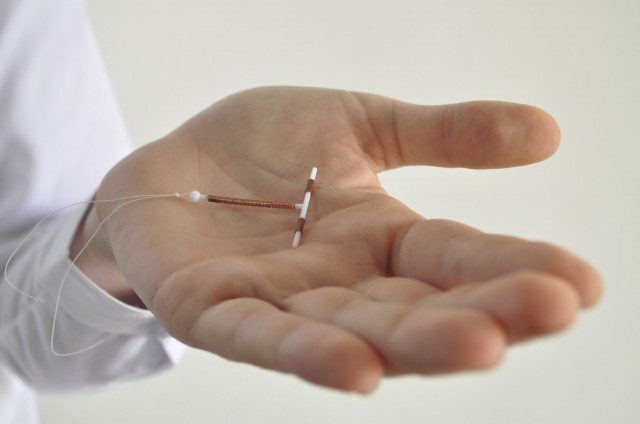That's why the "no co-pay" mandate of the health law is so important. A recent study published in the New England Journal of Medicine found that teenagers who received counseling about long-acting birth control, and then were offered to choose an option at no cost, chose a long-acting method, like an IUD. Researchers then found they were much less likely to get pregnant, give birth or have an abortion.
What We Found: Prices Paid Ranged from $440 to $1,230
On PriceCheck, some women who shared their prices had gotten their IUD before the health law went into effect. Some of these women reported paying as much as $600 for their IUD. But none of the women in our group who got an IUD since the health law took effect reported paying a co-pay.
Of the submissions we received from women who got an IUD, overall prices charged ranged from about $650 to about $1,600.
But "prices charged" are considered "retail" prices. Insurance companies negotiate contracts with doctors, and the amount they pay is sometimes significantly less than what is charged. It's impossible for consumers to see this price range because those contracts are sealed.
We found that what insurers actually paid ranged from a low of $440, by Kaiser Sunset in Los Angeles, to $1,230 by Premera Blue Cross (an insurance company based in the state of Washington) to the Palo Alto Medical Foundation.
What Women Told Us
All the women in our database who got their IUD after the health law's requirement of no co-pay went into effect reported that they did not pay anything:
- "My insurance covered for me to get this free of charge."
- "I only paid my co pay for my first visit which was a pap and pregnancy test and consultation for the IUD. (After the appointment for the procedure and two follow ups) I didn't pay anything.
Another woman reported that she did have to pay for a follow-up appointment. Anthem Blue Cross had covered the $1,149 cost of her IUD and doctors' fees, even though she had "a few thousand dollar deductible … because it was considered preventative." Still, she had a six-week follow-up appointment and had to pay the full $197 cost.
Another woman said she was initially charged the full $1,200 cost, but called her insurer to challenge the charge. The insurer discovered the procedure had not been coded correctly. The error was fixed and her costs were "completely covered … three months later."
In other words, it pays to review your bills and call to ask.
Are You Paying a Co-Pay for Your Birth Control?
Recent studies show that our survey sample is not representative of what's happening across the country. The Guttmacher Institute surveyed privately insured women across the country. While the proportion of women obtaining IUDs at no cost rose from about 45 percent to just over 60 percent, you have to wonder why 40 percent of women are still having to pay.
“The biggest reason is probably the issue of grandfathered plans,” Adam Sonfield, a senior public policy associate at the Guttmacher Institute and the study’s lead author, told Kaiser Health News. Sonfield was referring to plans that were in effect when the Affordable Care Act was passed in March 2010 and haven’t changed substantially since. These grandfathered plans are not required to provide free contraceptive coverage.
Churches and other religious employers are also exempt from the requirement.
Share What You Paid!
We invite you, the members of our audience, to share what you paid. We're especially interested in IUDs, mammograms and lower-back MRIs, but our form is designed to accept virtually all health care tests, services and procedures. All you need is your insurance "explanation of benefits" and a visit to KQED's PriceCheck.
This post has been updated to reflect a new lowest-cost IUD.
